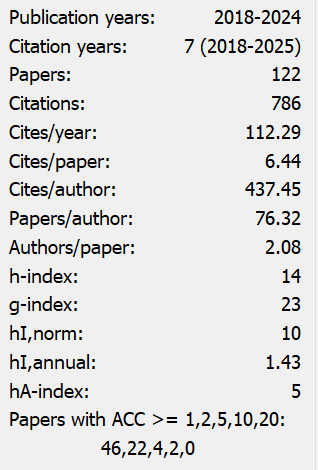Research on the Mechanism of Sustainability Disclosure on High-Tech Enterprises and its Implications - Huawei as an Example
Abstract
With the aggravation of global environmental problems, environmental accounting disclosure has become an important embodiment of corporate social responsibility and has a profound impact on corporate value. This study adopts a single case study method, and through the study of Huawei's Sustainability Report for many years, it provides corresponding suggestions for today's high-tech enterprises to make sustainability disclosure, which is of great significance to the green transformation and high-quality development of high-tech enterprises.
References
Li, F. (2016). Research on integrated reporting for corporate sustainability [Doctoral dissertation, East China Jiaotong University].
Wang, B., & Huang, J. (2020). Construction of corporate sustainability evaluation system: Based on environmental, social and governance factors. Finance and Accounting Monthly, (09), 109–118.
Ouyang, J. (2022, March 7). Corporate sustainability disclosure to achieve high quality, consistency and comparability. China Securities Journal, A04.
Yao, X., & Li, L. (2024). Research on optimization of corporate sustainability disclosure: Taking Company X as an example. China Management Accounting, (02), 31–39.
Cheng, Q. (2024). Corporate sustainability disclosure and surplus management [Doctoral dissertation, Shandong University of Finance and Economics].
Hu, X. (2004). Corporate sustainable development and corporate social responsibility. In Proceedings of Hefei University of Technology.
Lin, Y. (2023). Corporate social responsibility, information disclosure and corporate sustainability performance [Doctoral dissertation, Jiangxi University of Finance and Economics].
Chai, S., Cao, M., Feng, H., et al. (2024). Corporate ESG disclosure, media attention and financial performance: A heterogeneity analysis based on regional digitization level and industry environmental sensitivity. Journal of Xi'an University of Technology, 1–13.
Wang, H. B., & Han, B. (2016). Social responsibility, internal control and corporate sustainable development: An empirical analysis based on A-share main board listed companies. Journal of Beijing Technology and Business University (Social Science Edition), 31(01), 75–84.
Zhou, D., Saeed, U. F., & Agyemang, A. O. (2024). Assessing the role of sustainability disclosure on firms' financial performance: Evidence from the energy sector of Belt and Road Initiative countries. Sustainability, 16(2), 930. https://doi.org/10.3390/su16020930
Hou, H., Wang, Y., & Zhang, M. (2023). Impact of environmental information disclosure on green finance development: Empirical evidence from China. Environment, Development and Sustainability. https://doi.org/10.1007/s10668-023-03472-x
Fialho, A., & Novas, J. (2023). Readability of sustainability reports: A bibliometric analysis and systematic literature review. Sustainability, 16(1), 260. https://doi.org/10.3390/su16010260
Wang, G., Zhang, H., Zeng, S., et al. (2023). Reporting on sustainable development: Configurational effects of top management team and corporate characteristics on environmental information disclosure. Corporate Social Responsibility and Environmental Management, 30(1), 28–52. https://doi.org/10.1002/csr.2337
Hong, P. (2023). The impact of ESG disclosure quality on sustainable growth and asset pricing efficiency in China's industrial sector. Advances in Economics, Management and Political Sciences, 46(1), 202–211. https://doi.org/10.54254/2754-1169/46/20230339
Grishunin, S., Naumova, E., Burova, E., et al. (2022). The impact of sustainability disclosures on value of companies following digital transformation strategies. International Journal of Technology, 13(7), 1432. https://doi.org/10.14716/ijtech.v13i7.6194
Khaled, R., Ali, H., & Mohamed, E. K. A. (2021). The Sustainable Development Goals and corporate sustainability performance: Mapping, extent and determinants. Journal of Cleaner Production, 311, 127599. https://doi.org/10.1016/j.jclepro.2021.127599


This work is licensed under a Creative Commons Attribution 4.0 International License.
Copyright for this article is retained by the author(s), with first publication rights granted to the journal.
This is an open-access article distributed under the terms and conditions of the Creative Commons Attribution license (http://creativecommons.org/licenses/by/4.0/).


























